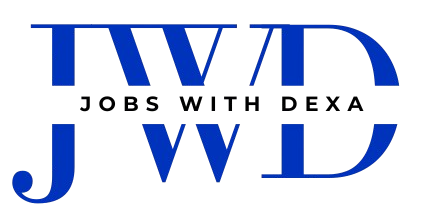The job market today is more crowded than ever before. With countless applicants vying for the same positions, how can you ensure you’re not just another resume in the pile? Standing out in a saturated job market requires a strategic approach, focusing on your unique skills, crafting a compelling personal brand, and leveraging networking opportunities. Here’s an in-depth guide on how to differentiate yourself as a job seeker:
1. Leverage Your Unique Skills
In a world where many people might share similar basic qualifications, your unique skills become your differentiator:
- Identify Niche Skills: Look beyond the common skills everyone lists. What specialized knowledge or abilities do you have? For example, expertise in a less common programming language, deep understanding of a niche market, or proficiency in a new digital tool can make you stand out.
- Soft Skills Are Gold: While technical skills are vital, soft skills like leadership, adaptability, emotional intelligence, and complex problem-solving are often what make the difference. These skills are harder to teach and thus more valuable.
- Lifelong Learning: The job market rewards those who show a commitment to continuous learning. Whether it’s through certifications, online courses, or attending workshops, show potential employers that you’re always expanding your skill set.
- Interdisciplinary Skills: Combining skills from different domains can offer unique problem-solving capabilities. If you’re a marketer with a background in psychology, for instance, you can apply human behavior principles to marketing strategies in ways others might not.
- Showcase Through Projects: Engage in personal or freelance projects where you can apply your unique skills. This not only hones your abilities but also provides tangible proof of your capabilities.>
2. Crafting Your Personal Brand
Your personal brand is how you market yourself to the world. Here’s how to make it compelling:
- Define Your Unique Value Proposition: What do you stand for? What unique qualities or insights do you bring to your work? Your personal brand should answer these questions clearly.
- Online Presence:
- LinkedIn Optimization: Your LinkedIn profile is often the first impression in the digital age. Use a professional photo, craft a compelling headline, and detail your experiences, skills, and achievements. Regularly post updates, share industry insights, or celebrate your accomplishments.
- Personal Website/Blog: If your profession allows, a personal site or blog can showcase your work, thoughts, and projects, establishing you as a thought leader or expert.
- Consistent Social Media: Use platforms like Twitter or Instagram to share your professional journey, connect with industry peers, or engage with content relevant to your field.
- LinkedIn Optimization: Your LinkedIn profile is often the first impression in the digital age. Use a professional photo, craft a compelling headline, and detail your experiences, skills, and achievements. Regularly post updates, share industry insights, or celebrate your accomplishments.
- Consistency Across Platforms: Ensure that your resume, LinkedIn, personal website, and social media convey the same professional narrative.
- Content Creation: Write articles, create videos, or host webinars. Content creation not only builds your brand but also positions you as an authority in your field.
3. Networking: The Human Element
Networking is not just about collecting business cards; it’s about building relationships:
- Quality Connections: Focus on meaningful interactions. Attend industry meetups, conferences, or online forums where you can engage with peers and leaders in your field.
- Alumni Networks: Tap into your school’s alumni network. Alumni often feel a kinship and are more likely to offer help or advice.
- Volunteer: Offering your skills to non-profits or community projects can expand your network while demonstrating your values and capabilities.
- Informational Interviews: Reach out to professionals for informational interviews. These are not job interviews but opportunities to learn, which can lead to mentorship or job opportunities down the line.
- Follow Up: Networking is an ongoing process. Keep in touch with contacts, share interesting articles, or congratulate them on their achievements.
- Professional Groups: Join or form groups or clubs related to your profession. These can be sources of support, referrals, and new opportunities.
Additional Strategies for Standing Out
- Tailored Applications: Never send a generic resume or cover letter. Tailor each application to show how your unique blend of skills and experiences aligns with the job’s requirements.
- Visibility: Engage in public speaking, write guest posts, or participate in panel discussions. Increasing your visibility can make you memorable to potential employers.
- Mentorship: Both being a mentor and having one can enrich your professional life, offering new perspectives and learning opportunities.
- Adaptability: Show through your application materials or during interviews that you’re not just competent but also adaptable and eager to grow with new challenges.
- Personal Projects: If you’re not currently employed or looking to switch careers, personal projects can demonstrate your initiative, creativity, and commitment to your field.
Conclusion
In a saturated job market, differentiation is key. By focusing on your unique skills, building a strong personal brand, and engaging in effective networking, you can significantly increase your chances of standing out. Remember, this is not about being the loudest in the room but about showcasing your authentic self in a way that aligns with what employers are looking for. It’s about making your mark in a crowded field by being uniquely you. Keep learning, keep connecting, and keep showcasing your value. The job market might be saturated, but your potential is boundless.

